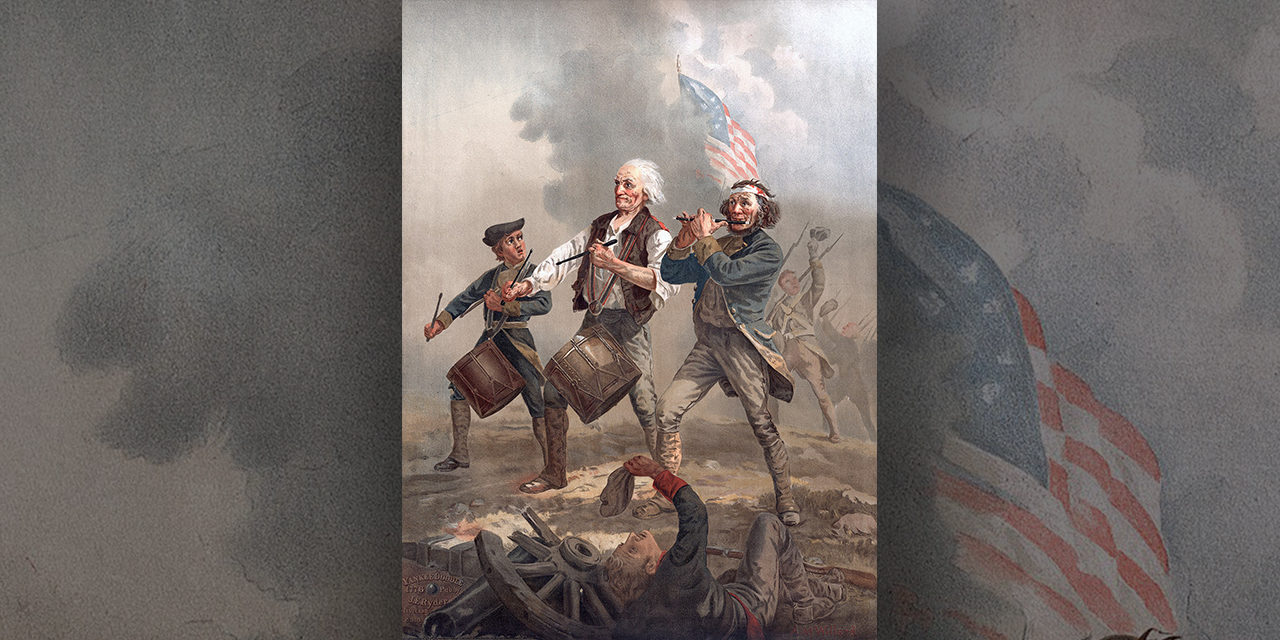How does the rising generation of young Americans actually learn American history in the 21st century? How do school-age boys and girls, say, from first to twelfth grades in a typical American community, absorb and distill the founding of our nation and its glorious and singular story and narrative of sacrifice, honor, nobility, and a sacred quest for independence from the British Empire?
If you could employ a kind of proverbial ‘man or woman on the street’ set of interviews, it is probable most Americans would answer “Why, in their history classes, of course, in school. In their civics classes.”
Most people of goodwill would organically assume that public and private schools, sectarian and non-sectarian alike, are working from a reliable textbook or civics set of lessons that begin as early as the Pilgrim mothers and fathers’ arrival on the Mayflower 400 years ago; continue through the battle on Lexington Green in Massachusetts in April, 1775, with the fighting at Concord North Bridge to follow; and culminating in the formal founding of the United States of America with the signing of the Declaration of Independence, written by Thomas Jefferson, on July 4, 1776, in what is now Independence Hall in Philadelphia with the Liberty Bell (now, not then) located nearby.
But, alas, this is no longer the uniform case in the teaching and conveyance of American history. In fact, despite all the national debates and Sturm und Drang among not only the political class in Washington but also among the average citizenry in all 50 states, the teaching of American history does not get nearly the attention it deserves and yet, I would argue, is the single most important determinant and civic bellwether of where America is “going” in the next 50 years.
If this generation does not successfully convey to the next generation the truth of the American founding, defined by the signing of the Declaration in 1776 as America’s actual genesis, and how the Constitution and its matchless ideas flow directly from the Declaration and the founding era, thereby defining the entire scope and narrative of our nation’s future, then every other ideal, hope, prayer, and dream we as parents and grandparents have for the future of our beloved nation will become contested in unimagined major and minor ways in all the years ahead.
A major and highly consequential national debate is underway now.
A segment of American progressives has launched something called the 1619 Project which, lacking any subtlety or kernel of truth, asserts that the actual founding of America was not 1776 with the signing of the Declaration but rather when slave ships arrived on American shores for the time in that early year of the 17th century.
The author of the 1619 Project was awarded a Pulitzer Prize even as major planks of the Project have been successfully and overwhelmingly contested and disproved by the most important and consequential historians of American history, beginning with our finest historian of the American Revolution and founding, Gordon S. Wood of Brown University, whose oeuvre of books and research is unmatched across the last 50 years.
Brown’s credentials and non-ideological bona fides are unassailable, and his histories of America are breathtakingly well-researched — the apotheosis of excellence in scholarship at its finest and lasting. He has few peers, and they have successfully joined his rightful contesting of the flawed and baseless 1619 Project.
A bevy of other superb American historians have rightly shown the toxicity and errors of the Project even as it has inexplicably and damagingly been adopted in countless schools across the nation, setting the next generation of impressionable young Americans off on a false quest about their own nation’s founding and history.
Truth has become the great casualty of our age.
So we have arrived at a clarifying moment in America: Shall our children and grandchildren be imbued with a false, misguided, and misleading history — refracted through a politically-correct and woke “new” history of the United States, and defined by confabulation and irrationality — or will they be taught to rightly understand why 1776, and all that flows from that immeasurably consequential year, is the actual founding of our nation and from which flows the rise of America and the fundamental Constitutional rights that are decidedly the basis of what makes our nation exceptional, and free?
This debate is about the meaning of America, the nation Abraham Lincoln rightly called “the last best hope of earth.”
The jury is decidedly out. The stakes could not higher for American families.
Photo from Wikimedia






